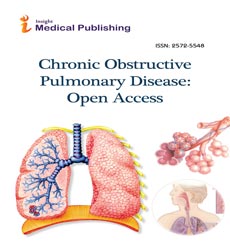Abstract
Characterization of Smoking Habits Patterns in Medical Doctors of a Central Hospital in PortugalÃÆâÃâââ¬Ãâââ¬ÅWhat has Changed after 15 Years? A Comparative CrossSectional Study
Introduction: Tobacco dependence remains one of the primary health care concerns worldwide. Attitude of healthcare professionals towards smoking is crucial for any long-term prevention and smoking cessation program.
Objectives: Analyze smoking habits of medical doctors from a central hospital in Lisbon (2014), comparing results between medical versus surgical specialities. Results were compared with those obtained in 1999.
Design and setting: A voluntary and anonymous questionnaire was distributed to all physicians for a period of 4 months. The questions included sociodemographic data, smoking habits characterization, attitudes towards smoking, importance attribute to smoking cessation programme in the hospital and knowledge of the 2008 country law.
Participants: All medical doctors working in the central hospital studied between 1/1/2014 and 30/6/2014.
Outcome measures: The primary outcome measure was to characterize the smoking habits of medical doctors. Secondary outcomes included comparison of results between surgical and medical groups and with those obtain in a similar study in 1999.
Results: Of the 423 surveys distributed we obtained 171 responses, with female predominance (58.6%). Response rate increased from 19.0% in 1999 to 40.4%. Smokers prevalence among doctors decreased in 2014 (21.0% vs. 14.6%), but significantly increased in females of 35.0% to 52%. Knowledge of the ban on smoking in public places was universal. Medical group had more responders (48.9% vs. 29.5%) but also more smokers (16.8% vs. 6.1%) with a higher degree of dependence (4.6 vs. 3.2) and more attempts to stop smoking (56.0% vs. 50.0%).
Conclusions: Knowing the smoking habits of medical professionals help us to identify risk groups in our hospital and to establish future smoking cessation strategies more specific and effective.
Author(s):
Rafaela Campanha, Ines de Sales Ribeiro, Margarida Raposo, Cristina Matos and Fernando Nogueira
Abstract | Full-Text | PDF
Share this

Google scholar citation report
Citations : 130
Abstracted/Indexed in
- Google Scholar
- China National Knowledge Infrastructure (CNKI)
- Publons
- Geneva Foundation for Medical Education and Research
- Secret Search Engine Labs
Open Access Journals
- Aquaculture & Veterinary Science
- Chemistry & Chemical Sciences
- Clinical Sciences
- Engineering
- General Science
- Genetics & Molecular Biology
- Health Care & Nursing
- Immunology & Microbiology
- Materials Science
- Mathematics & Physics
- Medical Sciences
- Neurology & Psychiatry
- Oncology & Cancer Science
- Pharmaceutical Sciences

